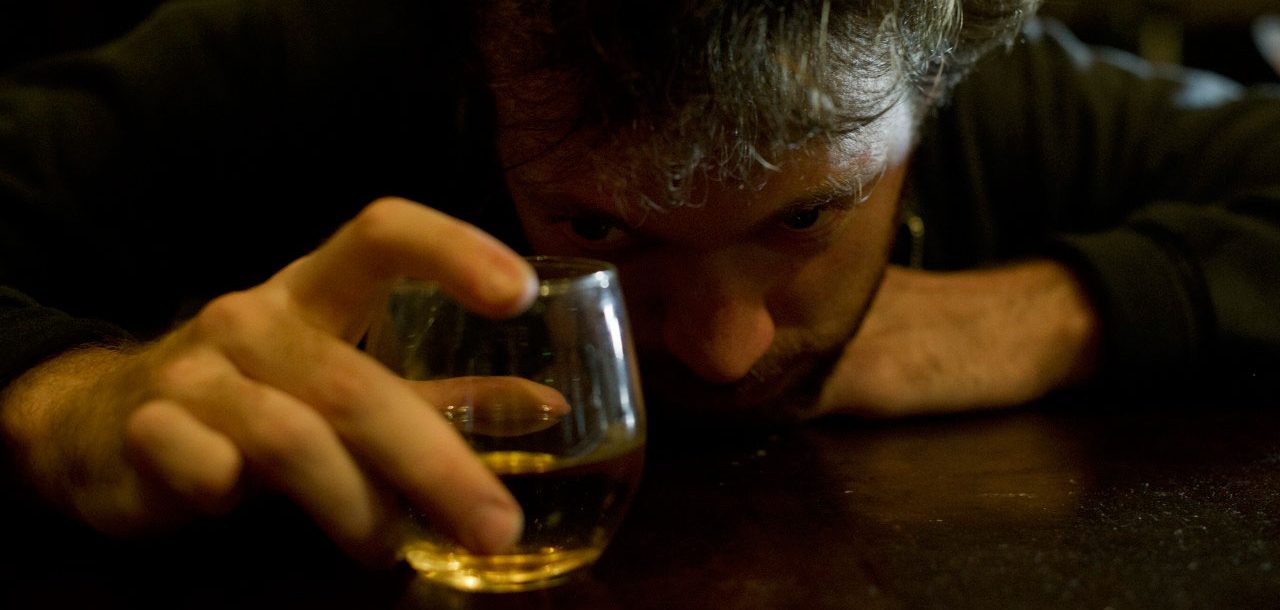February 14, 2018
When Your Mate Drinks Too Much

I spent a decade dating a man — let’s call him Mark — who drank two, and sometimes, three bottles of wine every Saturday night. It didn’t strike me as a big problem at first. After all, he was only drinking wine. We lived in a city and didn’t need to drive. I never drank more than a glass myself.
After about five years, he was failing at work and in danger of being fired. I kept pushing him to take action on his job and then I noticed — he was drinking more.
I talked Mark into going to a couple’s therapist.
The therapist and then a psychiatrist said he was depressed. He went on medication, and he kept on drinking.
You Might Also Like: Alcohol Does More Harm than Heroin and Crack
We often talk about “denial” — you know, it’s not a river in Egypt. But we less often talk about group denial, how entire offices, families, and circles of friends don’t see that the emperor is naked.
Addicts lie to you; Mark was a master liar. They are the con artists who fool one person after another, and then we think it’s true because the other people believe it.
Hard-won wisdom #1: Everyone around the problem may circle the problem and not see it. You get to be the kid who shouts out the embarrassing truth.
Neither the therapist nor the psychiatrist nor any of our friends labeled Mark as an alcoholic. I didn’t label him either because the “real” problem was depression, even if he did drink a whole lot.
Hard-won wisdom #2: You can’t wait for the “real” problem to go away. Drinking (or gambling, binge eating, drugs) has become as “real” a problem as the cause.
Hard-won wisdom #3: Love isn’t the answer. Understanding the reason why your partner is behaving badly helps you love him. It makes you feel better. But you can’t love him out of it. You also can’t hope that if you’re lovable enough he’ll love you out of it.
One day a friend of mine who worked as a parole officer called me when I was stuck late in the office. Parole officers see plenty of addiction.
We got into a long conversation, and I told her what was going on with Mark. I told her that I loved him and he loved me, that we would have long talks and fierce fights and make-ups, but somehow things just kept feeling more difficult and hopeless. “I can’t get any traction. I feel like he’ll agree to anything one day and then the next, we’re starting all over again. It’s like I’m not with one person, there’s no ‘there there.’”
She said, “Doesn’t he drink a lot?”
I gave her the details.
“You sound like someone in love with an alcoholic,” she said.
“An alcoholic? He’s depressed.”
She explained. She told me that if I left him, he might get better. She said that that was the best — or only — way I could help him at this point. She also said that alcoholics who recover are “beautiful people.” I remember the enthusiasm in her voice. She explained that conquering weakness teaches compassion.
Since then, when I’ve told this story to people who know alcoholics, I’ve heard laughter and some skepticism when I say that recovered alcoholics are beautiful people.
Love helps in this way: if it helps you do what you need to do.
I wasn’t going to go because he was hurting me. That line of argument — that I had to save myself, first — just made me sad, and sadness paralyzed me. Like many people in destructive relationships, I was willing to endure a great deal for him, and my parole officer friend understood and respected that in me. She didn’t call me an “enabler” or “co-dependent.” She gave me hope.
So I told Mark exactly what she had said. It worked: He admitted that he was alcoholic. We broke up, and I moved on. He stopped drinking for more than a year, and I remain grateful that he had that time of clarity.
When he died, during a binge, people still didn’t want to talk about alcohol. Since I’d dumped him, I didn’t get to make the decisions. His family was ashamed and chose not to have a service. In the company newsletter at his office, mourners were asked to donate money for cancer research.
Carole Bennett, a substance abuse counsellor and the author of “Reclaim Your Life: You and the Alcoholic/Addict,” offers an exhaustive list of reasons people stay too long in relationships with substance abusers: money, the kids, fear of retribution, fear of being alone, pressure from others, shame, gossip, religious commitment, self-criticism. In my case, self-criticism and the belief that it was up to me to find the cure were big factors. So my friend helped me along by making it virtuous to go.
We often want permission from others, even a stranger, to move forward. So let me give you permission:
When you can no longer trust him or he bullies or blames you for his failures — those are excellent reasons to leave. When your entire family is revolving around him, or you are afraid of his anger, or he keeps raising the bar for you to “do your part” — those are good reasons, too. When, as Bennett puts it, “The thought of spending one more minute of your life like this is beginning to make you physically ill,” and “You no longer care how it looks to others, what anyone says, or what the ramifications may be,” the exit is before you.
Realize that you deserve better.


